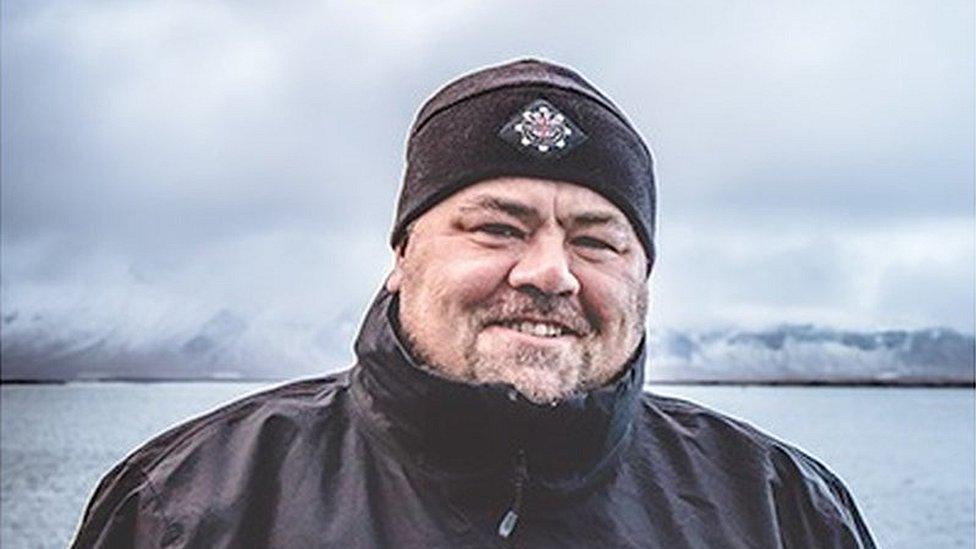Walton and Frinton volunteer is 'stood down' over RNLI boat change
- Published
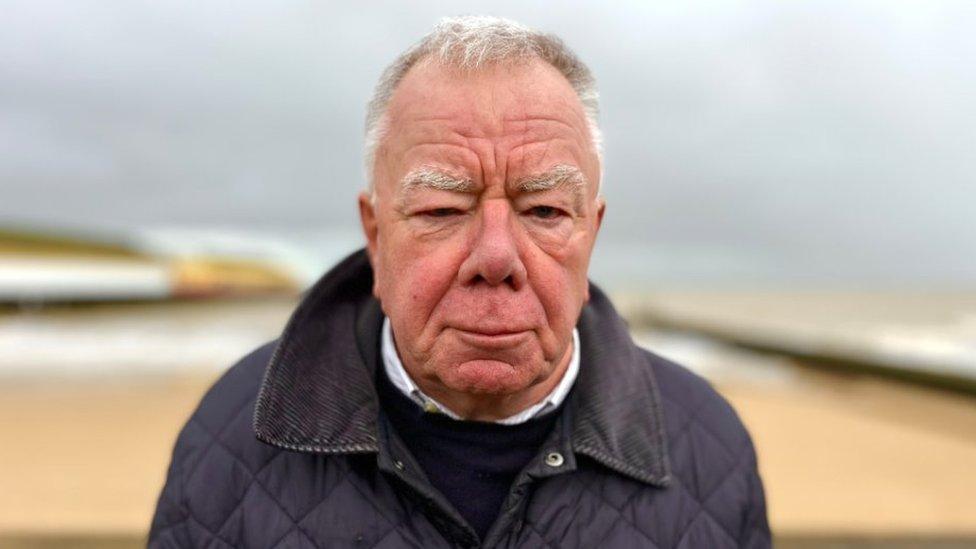
Philip Oxley, former chairman of RNLI crew Walton
A lifelong volunteer says he is devastated to have been "stood down" by the RNLI after 57 years amid a lifeboat replacement row.
Philip Oxley joined the Walton and Frinton lifeboat station in Essex at the age of 17.
He criticised an RNLI plan to replace the station's current 16m (52ft) long lifeboat with a five-metre (16ft) inflatable dinghy.
The RNLI said it would be supported by an all-weather lifeboat at Clacton.
In a letter seen by the BBC, Mr Oxley was told by the RNLI that he was being "stood down" for breaching the charity's volunteer code of conduct, and that the relationship between them had "broken down irreconcilably".
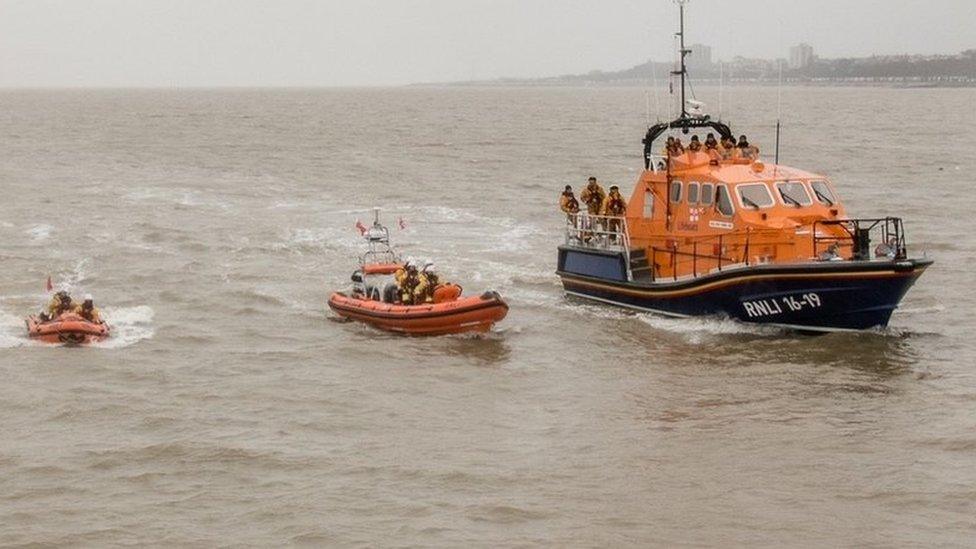
The RNLI is to swap the Walton and Frinton's larger lifeboat (far right) for the D-class boat (far left)
A row led to dismissals and resignations at the volunteer station during the RNLI's 200th anniversary year.
Those who opposed the move maintained that safety along the coast would be compromised.
Mr Oxley, a former head launcher, operations manager, honorary secretary, and station chairman, said: "We're devastated, gutted at what's happened.
"It's a way of life. We've all been doing this for many years and now we're not.
"We just want answers to our questions. If they'd engaged with us we could have found a compromise.
"Because I was so critical they asked me to resign or be sacked, and I wasn't going to resign after 57 years."
Mr Oxley said a compromise could have involved making improvements to the access walkway on the pier, or accepting an intermediate class boat like the Atlantic 85, in use at other east coast stations like Southwold, Harwich and Clacton.
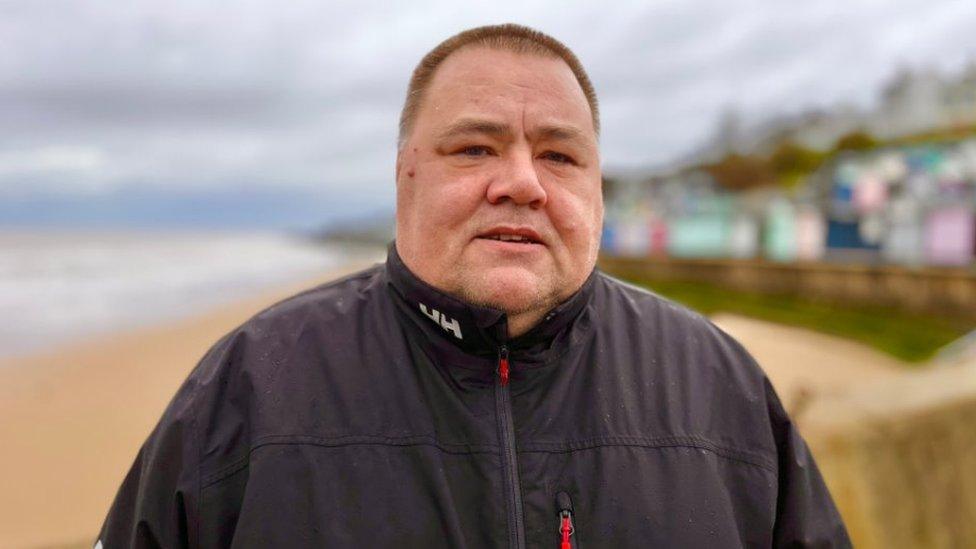
Stewart Oxley, the former operations manager at Walton RNLI station, was stood down last year
When the announcement was made last year, Mr Oxley's son Stewart was stood down as volunteer operations manager at the station over a "code of conduct" breach.
A handful of crew members resigned in support.
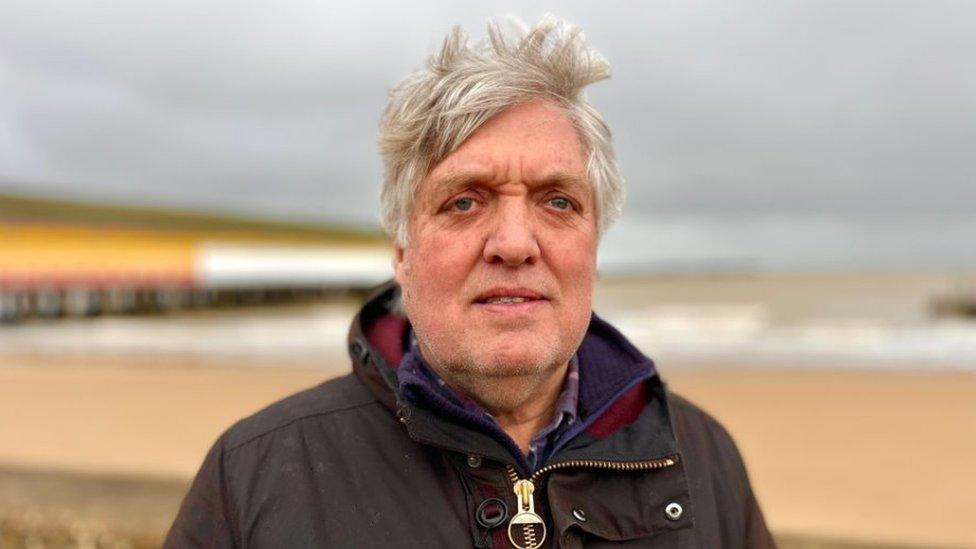
Former RNLI crew member John Hale said the inflatable "would not fit the bill"
One of them, John Hale, said he resigned with a "heavy heart" after 15 years.
He said the sandbanks off Walton still caused problems, even with improved maritime safety and technology.
"We do have faster boats now so I can see where all of this is going, but this is an incredibly busy coastline," he said.
"It's treacherous out there when it goes wrong and to suggest that a D-class here with an all-weather boat at Clacton would fit the bill just didn't sit right with us," he said.
The charity said the moorings off Walton Pier were unsafe and had been dismantled, and the all-weather boat, the Irene Muriel Rees, was currently based at a nearby marina.
Ross Barraclough, who leads the East region for the RNLI, said the change was driven by infrastructure issues with Walton Pier, which led to a review.
"The crew and lifeboat management team have been in open discussions for some time," he said.
"We've been engaged with the local council to explore viable options to site an all-weather lifeboat, but there's nowhere appropriate in that area that would make financial sense for the charity, and make best use of our supporters' donations."
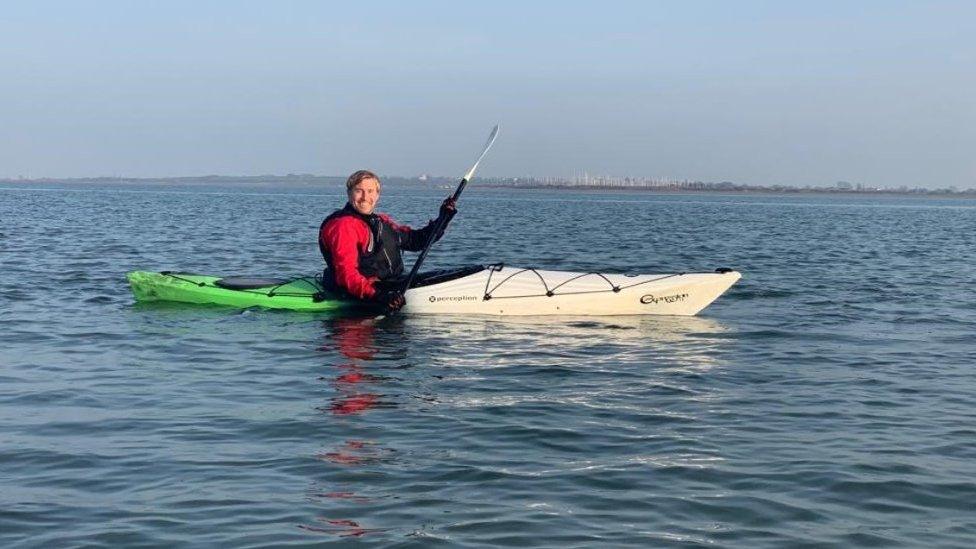
Phil Aiken said an inflatable lifeboat was only useful for "collecting inflatable flamingos in the summer"
But experienced local sailor and former lifeguard Phil Aiken said the loss of the all-weather craft could put lives at risk.
"If we go to a D-class, my understanding is that it can only go out in less than a force five, and only in daylight hours," he said.
"It has no use locally apart from collecting inflatable flamingos in the summer.
"When you go out it can get a bit lively out there. Without the level of cover from the Walton boat you are left with the feeling, 'Where is the safety?'"
Mr Barraclough said the RNLI's modelling showed that having the D-class at Walton, supported by an all-weather boat at Clacton would improve the lifesaving effect for the whole stretch of coast.

Follow East of England news on Facebook, external, Instagram, external and X, external. Got a story? Email eastofenglandnews@bbc.co.uk, external or WhatsApp 0800 169 1830
Related topics
- Published1 August 2023
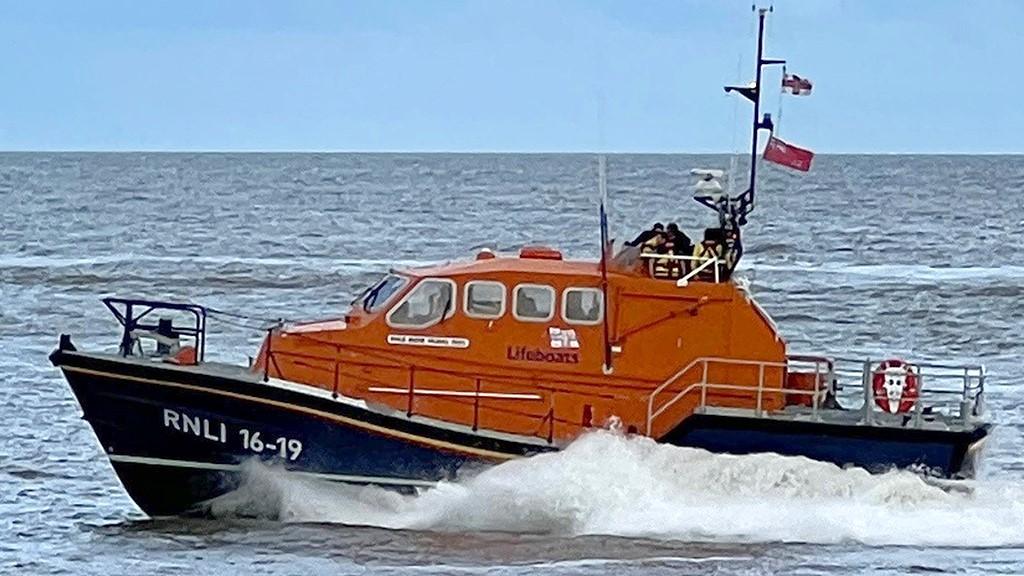
- Published30 June 2023
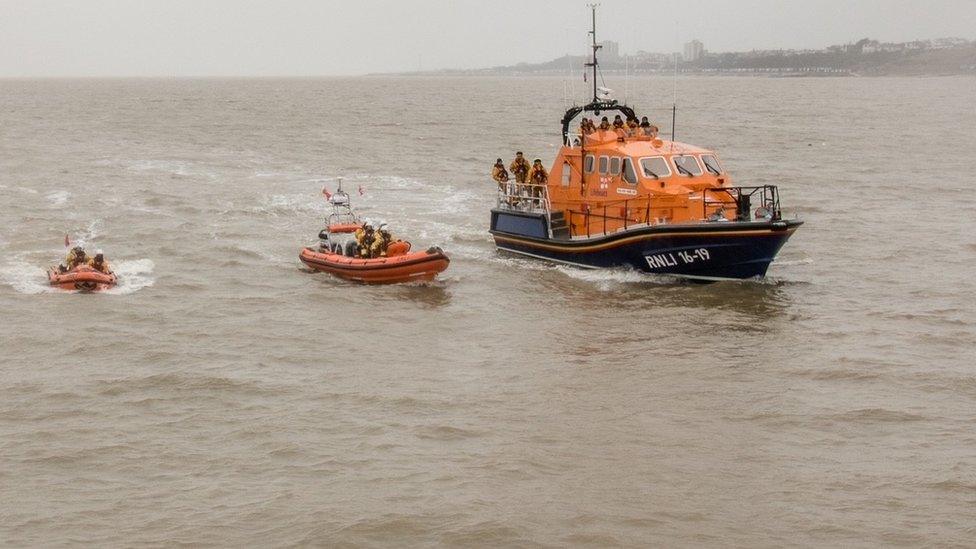
- Published23 June 2023
